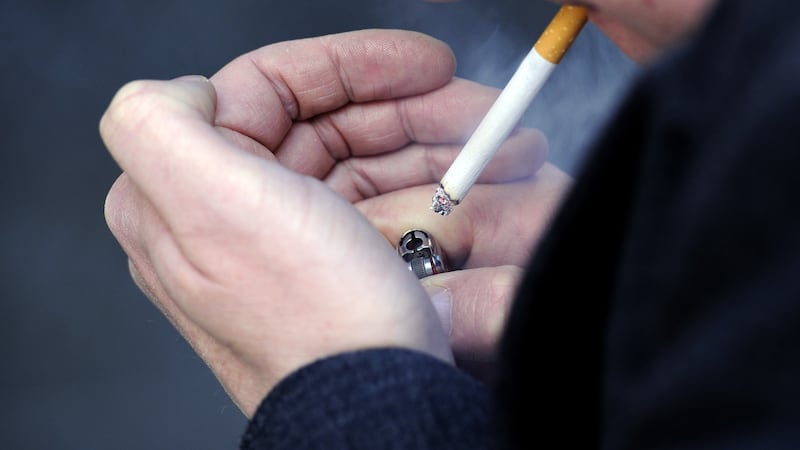I have nothing but respect and admiration for the Archbishop of Armagh, John McDowell. I got to know him while he was Bishop of Clogher and I regard him as a good and holy man and as a friend. He did great work here while in the Clogher diocese to heal this community and to further peace and mutual understanding. He was present for the visit of President Michael D. Higgins to Enniskillen a few years ago. The president visited both our Churches and Bishop John welcomed him.
On the issue of the service that took place in the CoI Cathedral in Armagh, I have to take issue with him and with the other participating religious leaders. However laudable their intent, the marking of the centenary of partition and the creation of the state of Northern Ireland in this manner could never be non-political. The hostile reaction of sections of political unionism to the decision of President Michael D Higgins not to attend the event merely proved this point. Both partition and the creation of the Northern Ireland state represent unresolved structural injustices to nationalists and republicans. By suggesting that these injustices and their attendant hurts are ‘in the past’ is, in itself, adopting a political position. Admittedly, it is a view held by many who saw the Good Friday Agreement as a final settlement rather than as offering a peaceful pathway towards a final settlement. The controversy raises an interesting question – is reconciliation possible in the context of continued structural injustice? For example, could we have imagined the South African reconciliation process proceeding without the dismantling of the apartheid system? Is it just possible that the most we can hope for on this side of our unresolved political problems is that the common decency of people can be harnessed to confront those within political unionism who seem determined to keep us locked within an iniquitous and intolerant Neverland? The carnival of reaction that James Connolly predicted in both parts of a partitioned Ireland is, unfortunately, still a reality in the failed political entity that is Northern Ireland.
FR JOE McVEIGH
Enniskillen, Co Fermanagh
Ignorance is bliss
Brian Feeney (October 13) describes the European Court of Justice (ECJ) as the supreme authority of the single market and customs union. Patricia MacBride (October 14) states that the ECJ deals with matters of EU law and Declan Kearney (October 12) in his statement equally portrays the ECJ in simplistic terms. However, over the years the ECJ has made a number of anti-worker judgments.
For example, the Laval judgment which denied the right of Swedish building site workers to defend their wages and conditions to the imposition of workers from Latvia who were on inferior wages and conditions. The Swedish workers quite rightly saw this as a threat.
Similarly, Finnish seafarers employed by Viking had the workers proposed action against the company’s attempt to re-flag their ships in order to employ Estonian workers in inferior conditions, declared illegal. The workers action was legal under Finnish law.
In another case, Ruffert, a German local authority had a policy that sub-contractors employing foreign workers should pay them at local rates of pay. The ECJ ruled their policy illegal.
In what is known as the Luxembourg judgment, the ECJ ruled against a policy of posted workers being paid the minimum rate applicable in that country. In Britain workers employed by Woolworth who were denied notice payments in breach of the Redundancy Payment Act, had their case upheld by the Court of Appeal. The ECJ overturned it.
In a recent case – Holquist, Norway – the ECJ upheld the right of a ship owner to employ his own labour at the dockside in his own pre-existing terms. This resulted in the dismantling of Norway’s dock labour scheme.
These judgments are made in relation to employers exercising the ‘right of establishment’ which acts against workers’ interests as in the cases cited above. The ECJ is part of the neo-liberal economic structure of the EU and it seems Feeney, MacBride and Kearney are either ignorant of the facts or have no problem with them.
ERNEST WALKER
Belfast BT15
Daily suffering of elderly
Sadly I am writing to complain about the daily suffering of many old and feeble people who are forced to walk great distances to attend 10am Mass due to the nearby Cathedral parking spaces being filled with cars belonging to staff at St Patrick’s College.
I know that the staff at this college are good people and have been providing education on this site from 1838, often a beacon of light since pre-famine days. Since then many great teachers have blessed its rooms with the trend still continuing today with great success.
But I am puzzled why you can’t open your gates and allow your staff to park again where they did since motoring began, as 47 vehicles is not a joke and the old faithful are still in pain.
In their defence they’ll say preventing Covid is their aim but this excuse is only a myth as students sit together in class like battery hens. I do not blame the local clergy for this mess, they are all good people who do their best, but saying a prayer won’t take the problem away. So perhaps you decent people of the college shall consider your policy by opening the gates so that many of these generous old friends won’t fear going to Mass knowing that there is easy parking available again.
ADRIAN McGRAIL
Blackwatertown, Co Tyrone
Avarice triumphs again
Some minnows within the banking sector operated on a very dubious and aggressive business model prior to the financial crisis of 2008. These smaller, upstart banks, such as Northern Rock, in a bid for rapid growth and competitive advantage, fatally overloaded what is known as the ‘maturity mismatch’ – borrowing short via customer deposits to lend long via mortgages. This led to inevitable financial collapse with the advent of the credit crunch when access to short-term funding evaporated. The UK government had been keen to promote consumer choice. Consequently, it encouraged ‘light touch’ regulation of the financial markets. When the financial crash came efforts were then concentrated on fixing the banking sector. However, a similar, developing and problematic situation within another commercial sphere went completely unnoticed.
It has recently been observed that the financial sector’s disastrous scenario is now being replicated in the energy market. Smaller energy suppliers, trying to exploit the ‘maturity mismatch’, have been buying on the spot energy market. However, with the post pandemic, spot price spike, they are now incurring enormous losses. It is believed that only 10 out of 70 companies will survive. Déjà vu. Avarice has again triumphed over economic good sense.
GEORGE WORKMAN
Mornington, Co Meath







